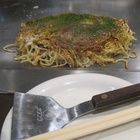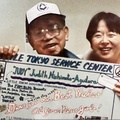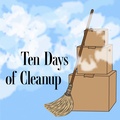A-ra, I think, struggling to turn off the hot water shower faucet. My uncle. The last person in the whole wide world that I want to talk to.
Risa’s holding out her cell phone from the open crack of the bathroom door. Her white arms are as thin as broomsticks.
I pull a towel from a shelf and wrap it around my body. I am usually not shy around Risa, especially since we’ve seen each other naked dozens of times in public baths in small towns around Hiroshima and in the onsen during some hot spring trips in Kyushu. But since we are in New York City now, I feel strangely self-conscious, as if American atoms have soaked through my head and made me into a Puritan.
After wiping my palm dry on the towel, I take hold of the cell phone. I do not say hello, just “hai.”
My uncle has also dispensed with niceties, but then he has never been nice. “You’re not getting away with this.”
How did you find out where I am, I wonder.
“I don’t care that you’re thousands of miles away. The law is still the law,” he shouts in Japanese.
“I don’t understand what you are saying at all,” I tell him.
“You stole our recipe. You stole our special ingredient. I know what you’re up to. You have no claim over Aka Okonomiyaki. It’s ours, whether it be in Hiroshima or New York.”
“I haven’t stolen anything. This is a recipe that my father taught and gave to me. It’s mine. You have no patent, no legal claim over it.” My grip on Risa’s cell phone is tightening. My knuckles are turning white.
“You silly girl. It’s called a trade secret. If we had a patent, everyone would know what makes Aka Okonomiyaki special. It would be spelled out in print.”
My uncle did study law at Hiroshima University, a point that he loves to repeat every chance he gets. I could have become a lawyer. I could have been an elite. Instead I chose to return back to carry on the family business.
But the real truth was that he failed to pass the bar, not only once, but three times. In Japan, you only have three tries. And so, he was out and back at the okonomiyaki grill.
I know something about the law, too. Before I planned my escape from my hometown, I did some studying on my own. “I never signed any papers to keep the recipe a trade secret,” I tell him. I imagine his bug eyes widening—I underestimated the girl, he’s thinking.
I have stumped him, but only for a moment. “At any rate, I’m going to stop you, one way or the other,” he says. “You know nothing about actually starting a business. Your grandparents were the ones who made Aka a success. Not your father. You have no idea.”
Well, you have no idea, either, I think to myself. The worst thing was, my uncle had absolutely no love for okonomiyaki, Hiroshima’s soul food. The business bought him his fancy sports car, the Mazda Roadster, and the top-of-line Mac laptop for his 14-year-old son, my cousin. That’s all he cares about. Things, material possessions. Not people. And certainly not anything about our food or the family business.
My father, on the other hand, had poured everything back in the business, including all his strength. Maybe if he wasn’t such a workaholic, he would not have been so tired driving that night…anyway, no sense in thinking about that now.
“How did you find me?” I finally ask.
“Makoto.”
I almost drop the phone. I had not spoken to Makoto ever since we broke up at Mazda Zoom-Zoom baseball stadium. Actually, I guess, “the incident” had happened next door at Costco, next to a case of dog food.
Somehow my uncle senses my hurt. “Oh, Makoto was a good catch. I guess you’ve never had luck in holding onto men.”
Anger surged up to my head. My uncle had the power to push my buttons, and he certainly is pushing hard on them right now.
“Just leave me alone. Never call this number again!”
“Fine. As long as you make no moves to start an okonomiyaki eatery in New York.”
I push the red button to end the call and almost fling Risa’s phone into the toilet.
“Kao-chan, stop it.” Risa gently pushes open the bathroom door.
I plop down on the ceramic tile floor and slide the phone towards her.
A plushy lavender robe is placed around my bare shoulders. Risa always knows what to do to make me feel better. Risa also knows every single detail about my relationship with Makoto.
“You didn’t.” I can’t believe that she has deceived me like this.
“I didn’t what.” Risa sits on the edge of the closed toilet.
“You’ve been talking to Makoto.”
Risa’s smooth face flushes pink.
“Why, Risa? You know it was bad.”
“I know. I was worried about you. For a while you weren’t taking my calls. I was going crazy here. So I called Makoto. To see if he knew how you were.”
“What did he say?”
“That he hadn’t spoken to you. But that he stopped by Aka’s, from time to time.”
I pull on the collar of the robe. “What? I never saw him.”
“He’d make sure that he’d go on your day off. Tuesdays, right?”
“My uncle never said anything,” I murmur.
“And why would he? He’s your mortal enemy.”
The way Risa says it almost makes me laugh. I feel like I have stepped into an old fairy tale with calculating evil relatives and poisoned fruit.
“He’s trying to stop me from starting an okonomiyaki business here.”
“He can’t do that.”
“He may be able to,” I say. Even though I had spoken so confidently on the phone, I have my doubts. Searching the Internet was not the same thing as really knowing the law.
“I know someone who might be able to help you.” Risa leaves the bathroom and then returns with a business card. “Call him.”
On the card is a string of hakujin names and then one Japanese one. Morgan Taketa. Attorney of Law.
“Morgan, this is a man’s name?”
"Yes, he’s Frederick’s lawyer. About let’s see, trademarks and all that stuff. He also works for a bank, so maybe he can get you a bank loan.” Frederick is Risa’s benefactor, the one who is paying for this apartment in Manhattan. Up to now she’s never mentioned his name and I wonder if I’ll ever meet him.
“I don’t have the money to pay him.”
“Then invite him over for dinner,” Risa says. “Tell him that you will be making him okonomiyaki.”
© 2016 Naomi Hirahara





